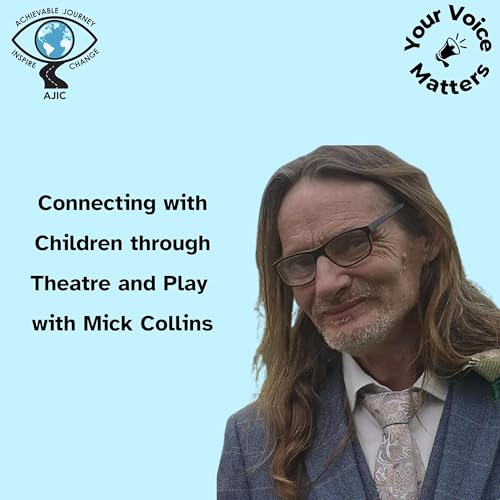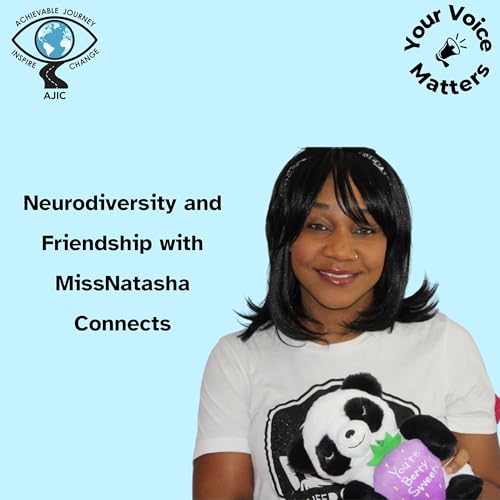Trigger warning: This episode touches on themes of trauma, isolation, and the impact of the pandemic on children’s mental health. Please take care while listening.
In this episode of Your Voice Matters, Asma Jacob chats with Mick Collins, a storyteller, theatre practitioner, leading practitioner in Trauma Informed Practice, and educator.
Mick shares his creative and compassionate approach to working with SEND children and children with trauma backgrounds, showing how theatre, play, and sensory experiences can open up communication and connection.
Together, they explore the importance of safe spaces, understanding behaviours, and rebuilding communication between children, families, and schools. Listeners will gain practical ideas and inspiration for supporting children in joyful, strength-based ways.
“It's not just the kids we work with. We work with the families, and we work with the schools, because for me, what's happened is communication's broken down.” - Mick Collins
Key Takeaways:
-
Follow children’s interests. Bringing their passions into learning spaces helps them feel safe and engaged.
-
Play builds connection. Creativity and play are powerful tools for communication.
-
Families matter too. Supporting parents and schools is just as important as supporting children.
-
Safe spaces help healing. Environments like sensory gardens and interactive theatre allow children to express themselves.
About Mick:
Mick Collins is a storyteller, theatre practitioner, leading practitioner in Trauma Informed Practice, and teacher with over 30 years of experience and passion in theatre and education. His speciality is technical theatre, specifically light, sound, and AV. He believes stories are imaginative learning experiences that can be accessed through the senses. His work combines technical theatre, sound, light, and movement with a love of dance and play. Mick currently teaches at Root’n’Branch Acres, an 18-acre woodland stage and working farm in the UK, where he helps children, many from trauma backgrounds, build confidence and connection through storytelling and creativity. When a story is interactive, he knows it becomes play, which is how he teaches.
Learn more about Achievable Journey
Follow Your Voice Matters and connect with Asma on Instagram, Facebook, LinkedIn, and X.
Remember to subscribe to Your Voice Matters wherever you listen to podcasts!
Share this episode with someone who could benefit from hearing the voice of the SEND and neurodivergent community.
 47 mins
47 mins 1 hr and 8 mins
1 hr and 8 mins 47 mins
47 mins Aug 20 202528 mins
Aug 20 202528 mins 37 mins
37 mins 40 mins
40 mins 47 mins
47 mins 1 hr and 3 mins
1 hr and 3 mins

